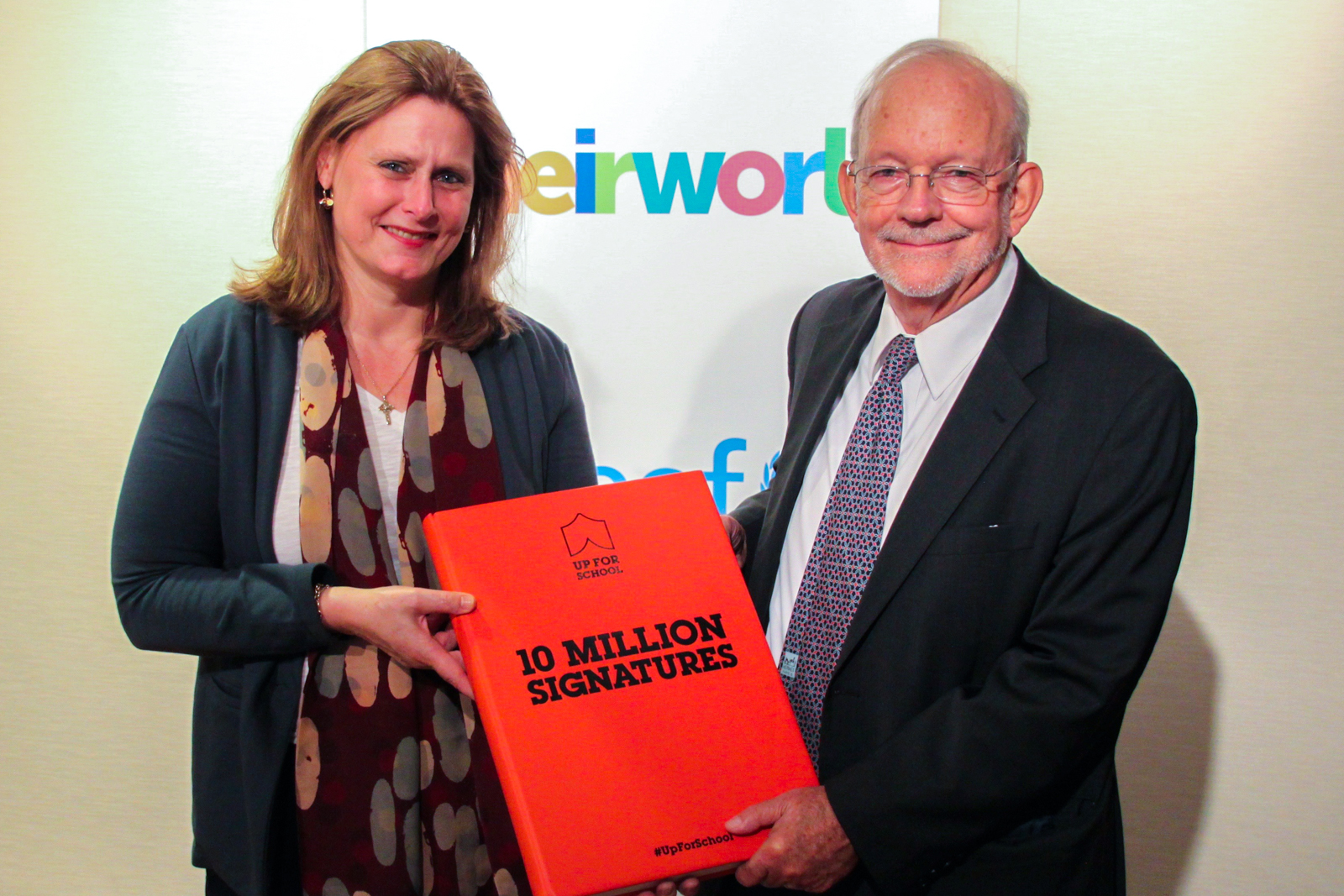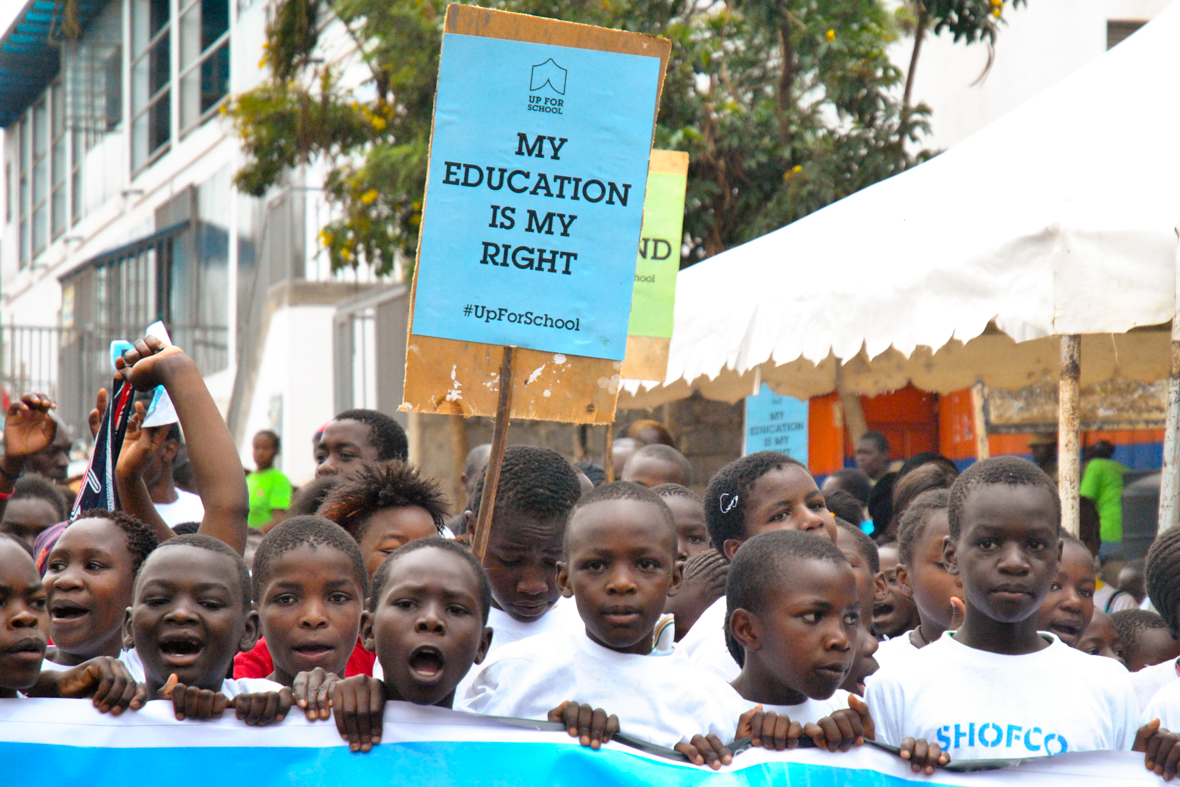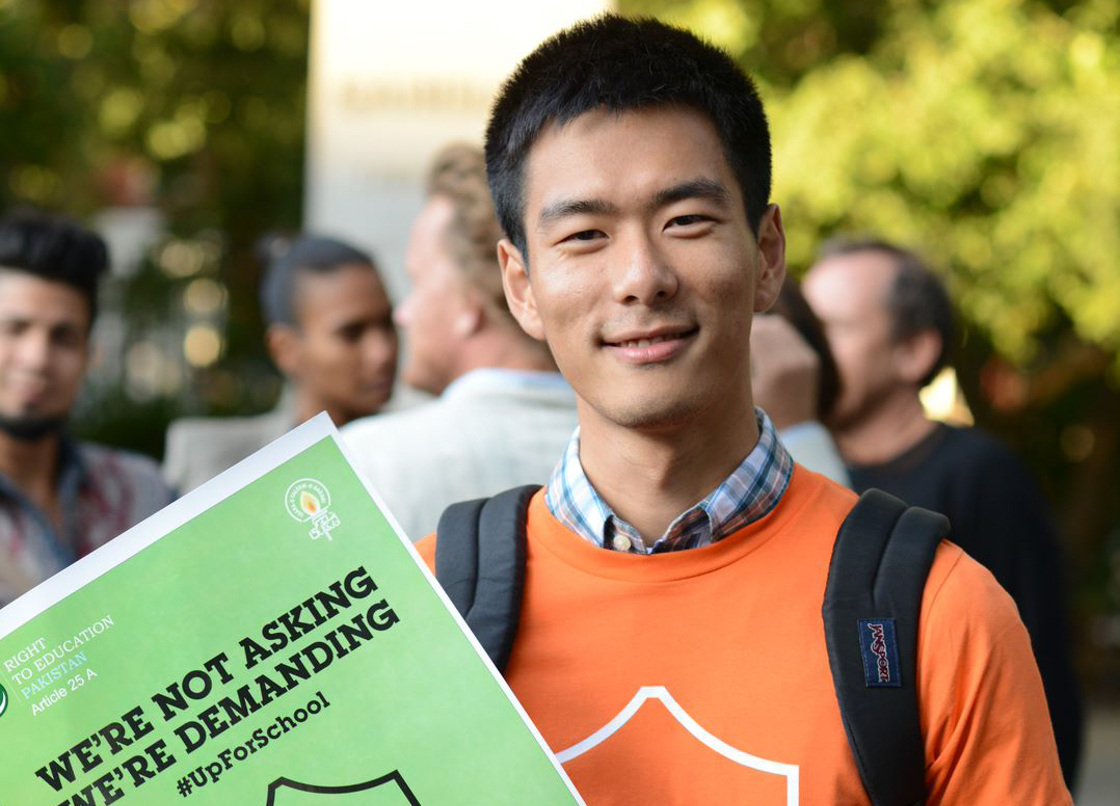10 million
people signed the #UpForSchool petition
By May 2015, the petition had collected five million names as support grew across NGOs, schools, colleges, communities and at youth events around the world. Faith-based communities were a huge source of support, with organisations such as Muslim Aid, World Vision Bangladesh and the Salvation Army spreading the word amongst their audiences and gathering millions of signatures.
While digital platforms and social media were vital tools in amplifying the call and collecting signatures in multiple languages, the campaign deliberately brought the cause directly to those who are so often overlooked.
More than 100,000 signatures were collected door-to-door in Pakistan, with children who couldn’t read contributing a thumbprint as a poignant symbol of their desire to learn. A million people in rural Bangladesh signed the petition, with Theirworld partner Bridges Across Communities (BRAC) coordinating the effort.
Meanwhile, in India, GYAs from the most marginalised groups shared the cause with those excluded from education such as tribal communities and the urban poor, and 10,000 children marched on the streets of Delhi to make their voices heard.
These children, like millions of others who demanded to be heard, understood that education represents one of the best ways for them to build lives free from exploitation, abuse and discrimination.




